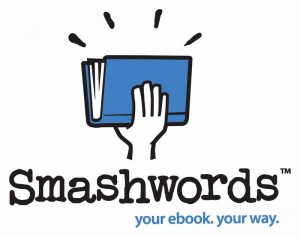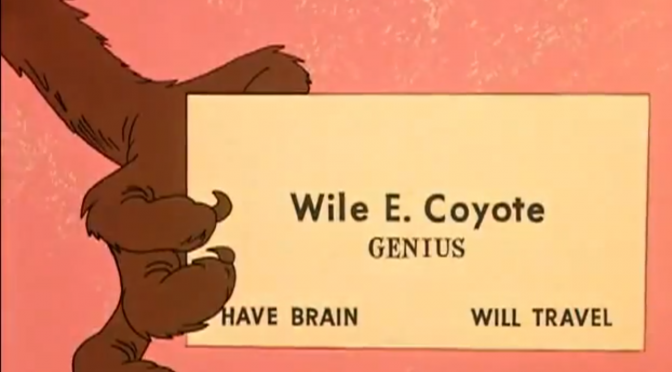For those following me last month, you know that I’ve been on something of a rant about the failures of the publishing industry and the grim numbers they keep touting. But all along I’ve been saying that Independents and eBooks can and will turn things around if we put a full measure of support behind them. The eBook support has become so obvious that a lot of publishers have finally started to move in the right direction. But I still believe that independents just might be able to patch the rest of the holes and fix this thing once and for all before it crumbles around us.
Just one question: How?
In my last post I talked about the problems currently facing the industry’s product. While we’ve all known there’s been way too many books on the market for traditional publishing, there’s three key factors that have to be worked on to ensure that ePublishing doesn’t go down the same crapper.
Visibility
Obviously, visibility is the hard one for any book. The biggest issue with them is that you’ve got a lot of books (over a million) and not a whole lot of resources to advertise those books. So how exactly can independents rescue the industry from something like that? Clearly, they have no resources.
Well, as I pointed out earlier, Independents advertise… a lot. They’re constantly putting out word on their books and their projects, they name drop the people that are helping them publish and they’re just about everywhere. If you’ve got a million books, you’ve got roughly a million authors and that adds up rapidly when you actually get them focused on the same goal.
The problem here is that, right now, they’re not really focused on that one goal. Rather than having a million people advertising towards the same locations, we have them each advertising their own directions. The few instances where they’re advertising together? Amazon and Smashwords.
Advertisement is a cumulative process. If the store front is doing well, then the product does well. Every time that smile on the Walmart commercials knocks down a number, it falls into someone’s pocket. This, logically, should mean that Amazon is a wonderful place for independent authors to go. They’re quickly becoming the dominant force in books and it’s the place where people go to get their books…
Currently, Amazon is my worst performing market.
Why? Well there’s a lot of reasons, enough that I could go over it in a whole new set of posts. But one thing that I can tell you is that I do better in the place that’s friendlier to me as an independent: Smashwords. Smashwords has a great system for independents, so much so that the only reason why anyone really knows that they exist is because the Independents know they exist. Hell, here’s how friendly they are towards independents… they have an affiliate marketing program (which you just used if you clicked on any of the times I mentioned Smashwords).
 |
| seriously, go to Smashwords, hell, buy my book |
But you know what Smashwords doesn’t have going for it? The advertising muscle of a publisher. Picture that. Picture if you could just advertise for a single website instead of every book you were publishing individually. Picture that you allowed Independents to post their work to the website like Smashwords does and you provided an affiliate program for them to use. Then, after that, you can post advertisements for your traditional publications on the pages these people are posting to.
Think of all that advertising… all that visibility that you didn’t have before… provided to you by the indies. And you’d get a cut of every book they sold too. And all you’d have to do to encourage them is three things!
1. Give them a place to publish that’s friendly to them
2. Give them an affiliate program (like Smashwords)
3. Occasionally, give them a random bump to the front page (or let someone else bump them there) so they get some notice too
Everyone wins!
Interest
Now, independents can provide traffic to your website for your works and you could benefit from their combined power (and vice versa). But what they can’t do for you is change people’s interest. If they could, they’d rule the world, have a best selling novel and appoint themselves king.
But what they can do is show you what’s interesting to the audience today. The publishing industry, mostly due to the way the system works, is slow to adapt and slow to react. You publish what you think people want, but the information you have is based on what they’ve bought last month (or last quarter, as the case usually is). By the time you’ve churned out more books in that category, the mob has moved on. But what if you can track not only what they buy but what they’re looking at? You know, like on the traffic details of a website… like Smashwords. I can take a look at the traffic of my own book on Smashwords at any given time. And if I can see it, they can too.
Imagine what they could do with that kind of information if they were trying to predict the market. They could hit the trends before they became dated. And when they did hit them, they’d have a better idea of what can sell because the information would also help them improve…
Quality
And this is the real whammy. Because right now our current system is based more on what the slush-pile editor is interested in. Sometimes that works very well, sometimes that doesn’t. Let’s not forget that people passed up on Harry Potter… Obviously, you need a better metric to figure out what will and wont sell.
How about a dry run?
Consider this, if you had indies publishing their works on a website that you could watch while you use them for advertisement… you could figure out what exactly is selling too. Not only could you figure out what’s selling, you could find big names that would otherwise slip past you. You could catch the lightning in the bottle before it’s moved beyond you.
Who would have thought Amanda Hocking would be a millionaire? No one. And yet there she is. Wouldn’t it have been great to see that coming? You could have… you still can.
And if you’ve been paying attention, that was one solution that covered three problems. That’s what we call efficiency. All you really have to do is give the people a goal.
Seriously, people organize easily when they want something.
And Wednesday I’ll close up this little series with a word to the Independents. In the meantime, buy my book, share this post and… go to Smashwords. And if you don’t want to go to Smashwords (you should), you can find alternatives for both of my books at my site.











